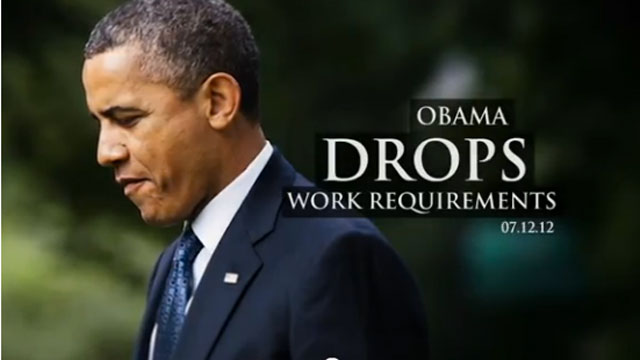“Under Obama’s plan, you wouldn’t have to work and wouldn’t have to train for a job. They just send you your welfare check,” a Romney ad claims. The ad is a variation on a theme — The Washington Post’s Ezra Klein points out that if you click through the videos on Romney’s official website, you’ll find more ads about welfare than just about any other issue. “Of the 12 most recent ads posted, five are about welfare,” Klein writes. “That’s more than the number dedicated to health care (four) or introducing Paul Ryan (one) or the economy (one).”
Romney’s claim that the Obama administration has dropped the work requirements for welfare recipients has been thoroughly debunked, and that debunking has been widely reported. In fact, the administration “allows states to try different ways of meeting the work requirements of the federal law” in an effort to “make welfare-to-work efforts more successful, not end them,” according to Politifact, which gave the ad its lowest “pants on fire” rating.
Why then, do the ads keep running? Two Romney insiders offered some surprisingly candid insight into the question at a forum hosted by ABC News and Yahoo! News this morning.
“Our most effective ad is our welfare ad,” said Ashley O’Connor, one of Romney’s top ad strategists. The ads target white working class voters, a crucial demographic, who have in the past harbored deep resentment towards welfare recipients.
“We’re not going to let our campaign be dictated by fact-checkers,” added campaign pollster Neil Newhouse after the panel.
So where does the “who cares if it’s true, it works” attitude, as journalism professor Jay Rosen calls it, leave voters? And, as Rosen wonders in a recent blog post: what can the media — and the public — do about it? Rosen raises the question in a recent post on his Press Think blog, but can’t come up with an answer.
Any suggestions?


